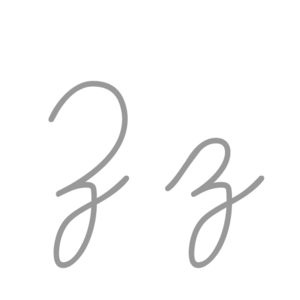Z facts for kids
| The Latin alphabet | |||||
|---|---|---|---|---|---|
| Aa | Bb | Cc | Dd | ||
| Ee | Ff | Gg | Hh | Ii | Jj |
| Kk | Ll | Mm | Nn | Oo | Pp |
| Rr | Ss | Tt | Uu | Vv | |
| Ww | Xx | Yy | Zz | ||
Z is the twenty-sixth (number 26) and last letter in the English alphabet. The small letter, z, is used as a lowercase consonant. Z is not used much. It is the most rarely used letter in the English language. The same letter of the Greek alphabet is named zeta.
How it is said
The letter is said as either zed or zee. The first way of saying it comes from the Greek zeta. In American English, its name is zee because it comes from a late 17th century English speech.
Where it came from
| Phoenician zayin |
Etruscan Z |
Greek zeta |
|---|---|---|
 |
Semitic
The name of the Semitic symbol was zayin and was the seventh letter. It might have meant "weapon". It could have helped form English and French's z.
Greek
The Greek form of Z was a close copy of the Phoenician symbol I. It stayed like this for a long time. The Greeks called it zeta, a new name made from the Greek letters eta (η) and theta (θ).
Etruscan
In Etruscan, Z may have been.
Latin
In Old Latin (written s) became and the symbol for became useless. It was taken away from the alphabet by Appius Claudius Caecus, and a new letter, G, was put in.
In the 1st century BC, Z was put in the alphabet again at the end of the Latin alphabet. This was done to accurately represent the sound of the Greek zeta. The letter Z appeared only in Greek words, and is the only letter besides Y that the Romans took from Greek.
Meanings for Z
- In cartoons, Z means the sound of sleeping or snoring, like in "ZZZzzzz...".
- In particle physics, Z stands for the Z boson.
- In chemistry, Z stands for the atomic number.
See also
 In Spanish: Z para niños
In Spanish: Z para niños


